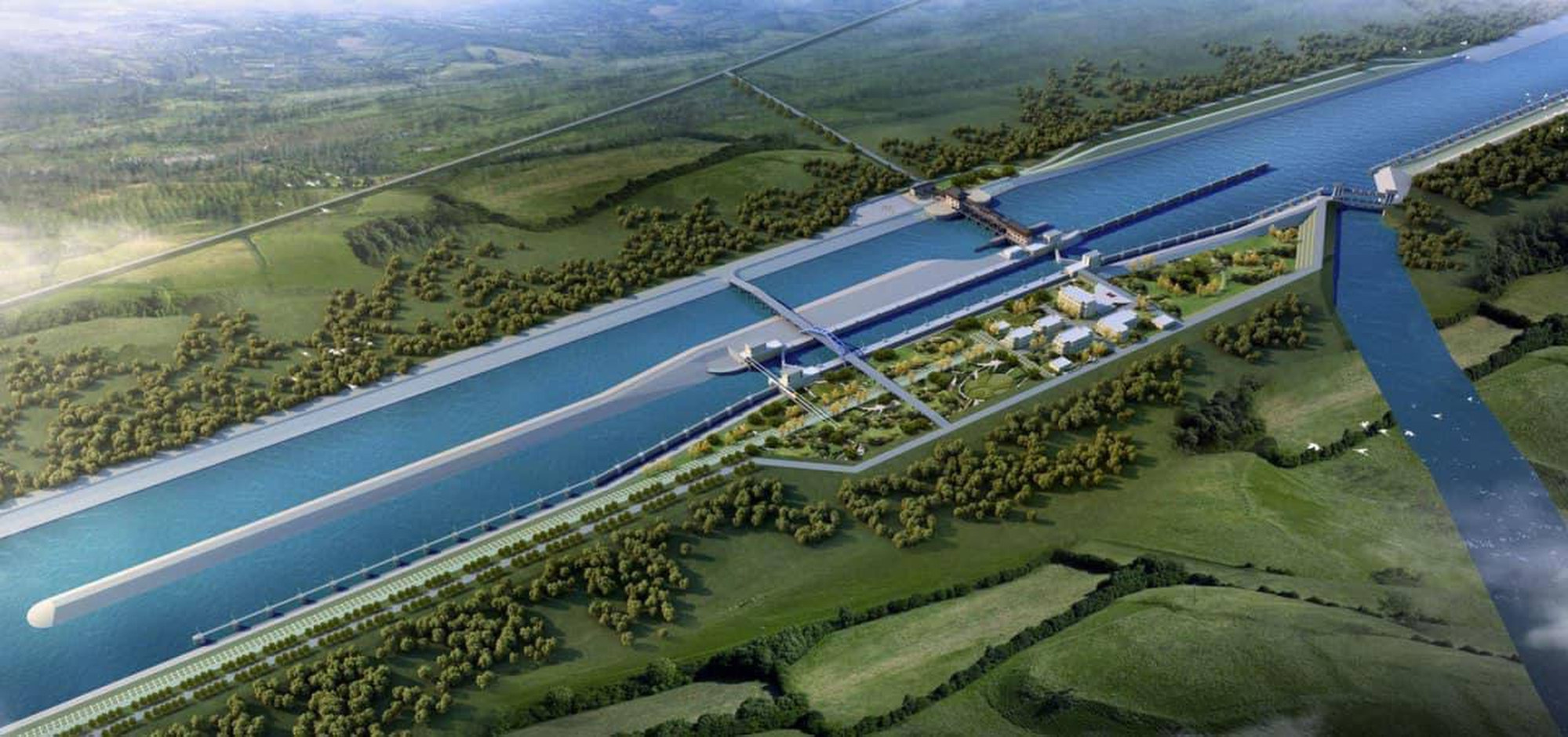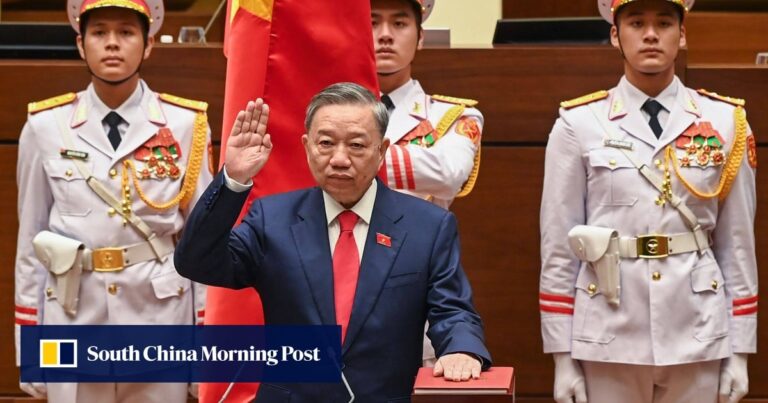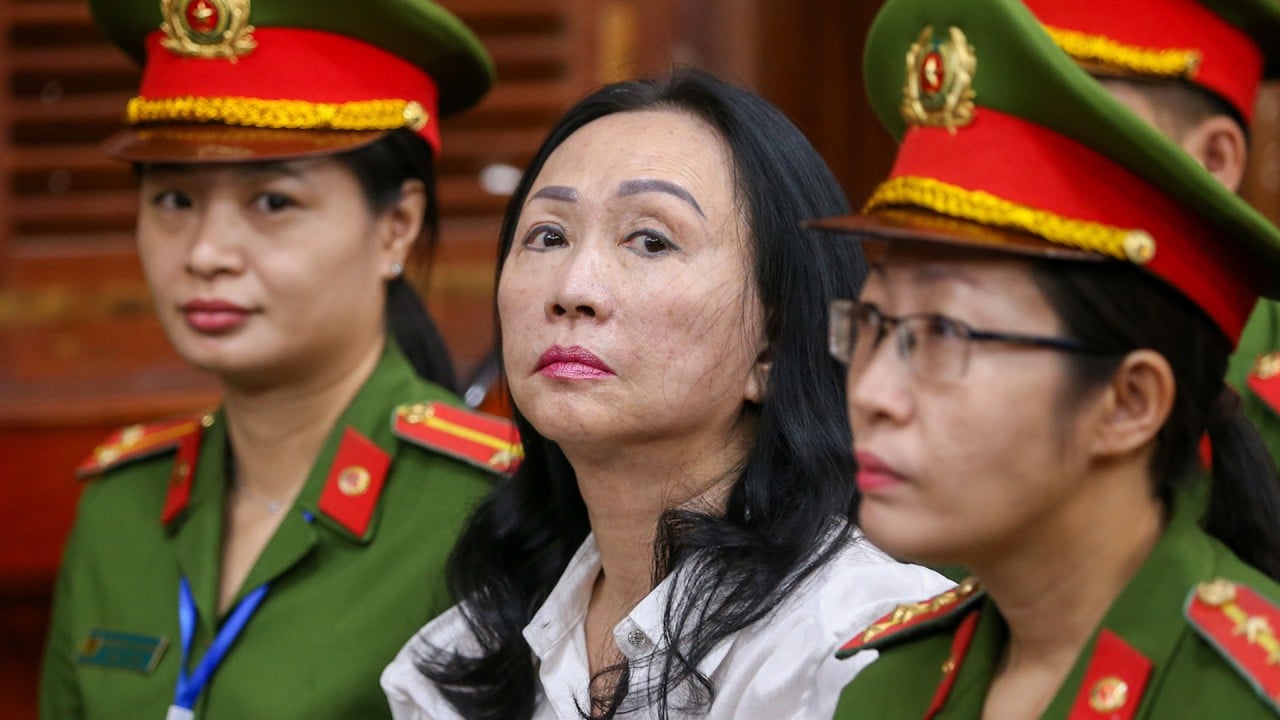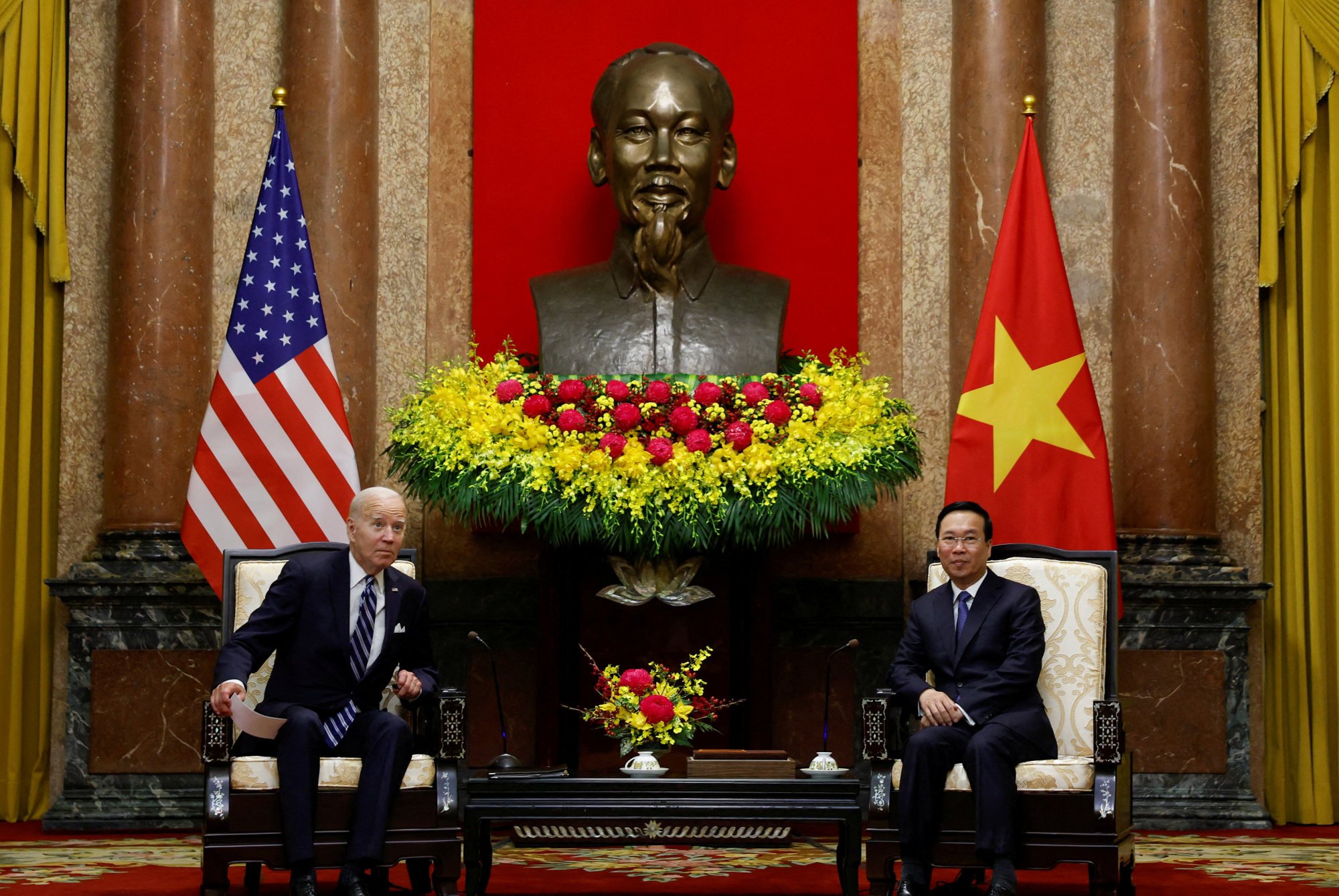
Huynh Tam Sang, an international relations lecturer at Vietnam University of Social Sciences and Humanities, said it was not in Hanoi’s best interest to change the trajectory of its foreign policy.
The term, evoking bamboo’s strong roots, sturdy trunk and flexible branches, captures Vietnam’s nuanced geopolitical strategy: to remain independent and benefit from multiple international partnerships without being tied to any one country.
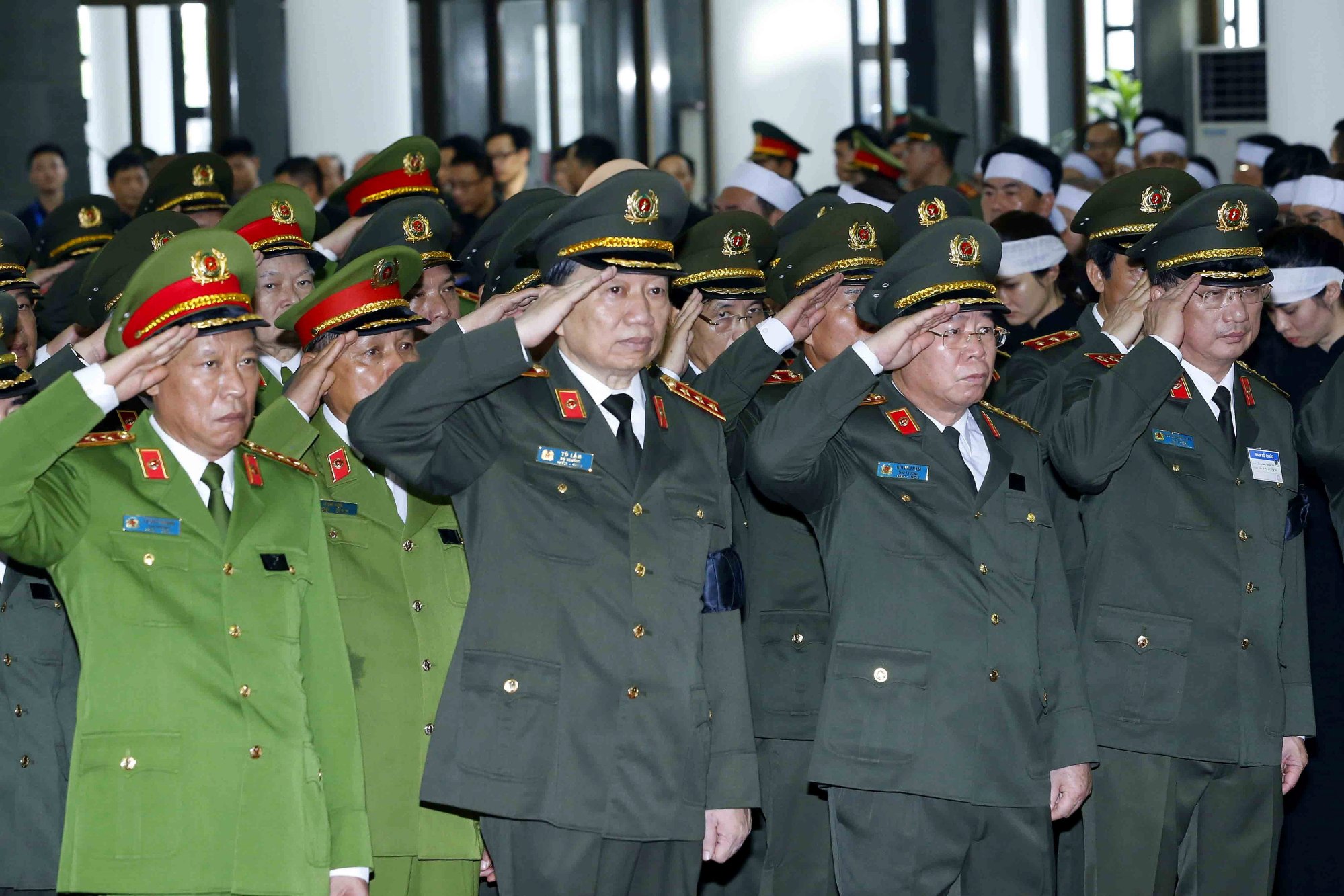
Security advice
Huynh said Vietnam’s new president visited China in September last year, during which the Ministry of Public Security learned “a lot of tactics” from China, especially counter-terrorism and counter-insurgency measures. Monitoring dissent and policing activists are two of the ministry’s main roles.
Huynh also said Lam had in January sought “theoretical and practical advice” from China’s top security officials on how Vietnam’s Communist party could maintain “full control of power and leadership”.
“Chinese authorities perceive Lam as trustworthy as she has a symbiotic relationship with Secretary-General Nguyen Phu Trong, who has sought to maintain a close relationship with President Xi Jinping,” he said.
Zachary Abuza, a professor of security strategy at the National War College in Washington, said Vietnamese leaders “have always seen the world through the same eyes as China.”
It is clear that the Vietnamese Communist Party has adopted many Chinese methods to stay in power.
“They fear ‘color revolutions’ and their policy priority has always been regime survival, and they equate regime security with national security,” he said, referring to a series of pro-democracy movements that swept several former Soviet republics in the early 2000s.
Abza, who is also an adjunct professor of security studies at Georgetown University, said the inclusion of many public security officials among Vietnam’s 12-member Politburo – at least five of them including Lam – and the bureau’s reported wide-ranging directive last year warning against “hostile and reactionary forces” indicate growing anxiety among the ruling elite.
Directive 24, obtained by local human rights activists, purportedly contains stern warnings about the threat Vietnam’s growing international ties pose to national security.
“It is clear that the Vietnamese Communist Party is adopting many Chinese methods to maintain its regime’s survival,” Abza said.
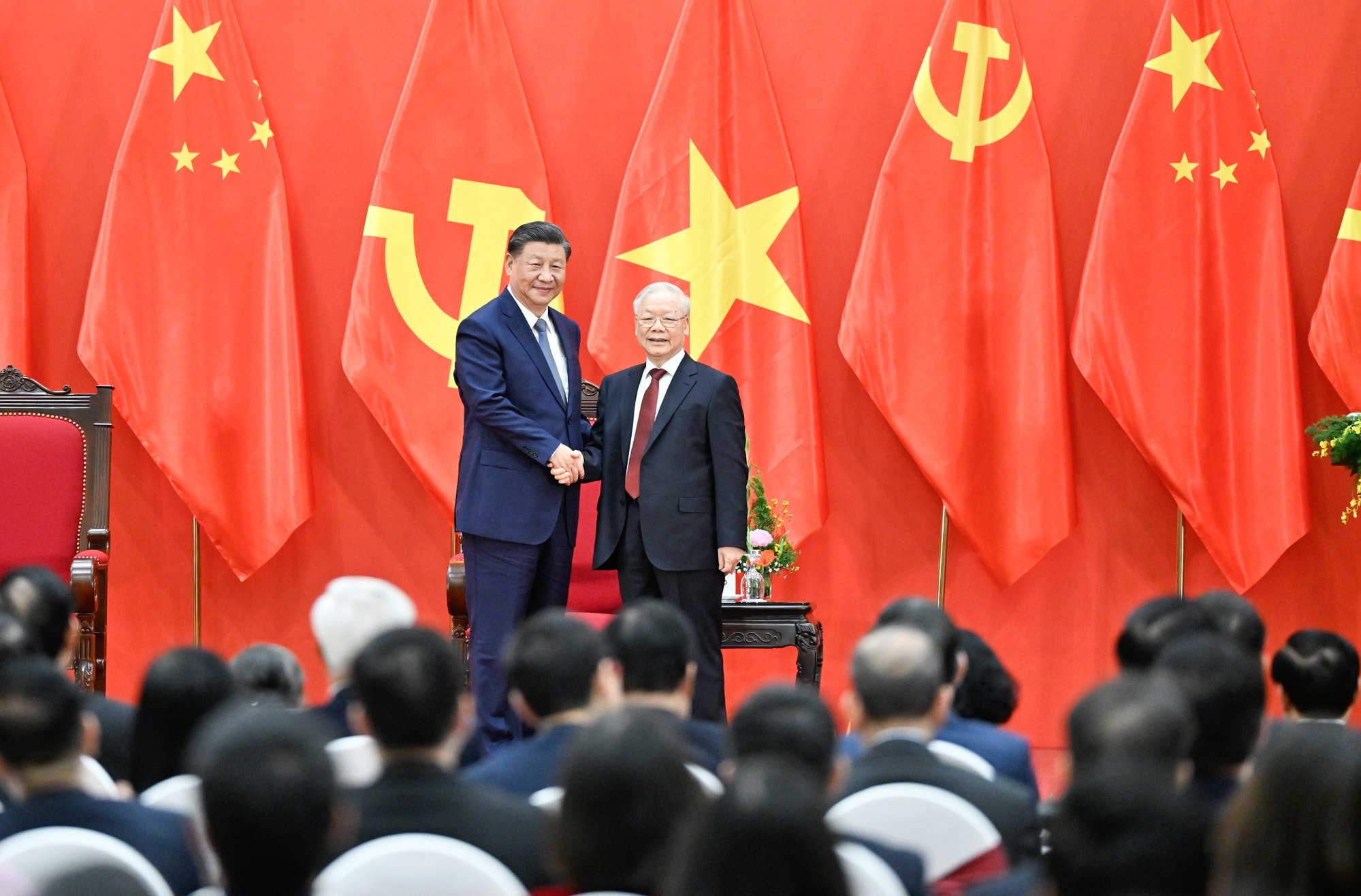
“Hanoi is learning from Beijing, whether it’s the cybersecurity law, the use of tax laws to target opponents of the regime, or extrajudicial deportations.”
“Vietnam relies heavily on integration into the global economy and has been a major beneficiary of companies’ risk aversion strategies,” Abza said.
Alexander Buving, a Hanoi-born professor at the Asia-Pacific Center for Security Studies in Hawaii, said he expects Vietnam’s political turmoil to continue at least until early 2026, when the Communist Party is scheduled to hold its next national congress and elect a new leader.
“Vietnam’s struggle for hegemony will continue,” Bhuvin said, adding that a change in foreign policy direction was likely only triggered by a transformation in the strategic environment.
Vietnam’s Game of Thrones Continues
“Such a change could be China crossing Vietnam’s red lines in the South China Sea or a sharp deterioration in relations between Cambodia and Vietnam,” he said. “In either case, Vietnam is more likely to move away from China rather than towards it.”
According to a foreign ministry statement quoted by Chinese state-run tabloid Global Times, Beijing said its actions in the so-called Beibu Gulf “strictly comply with domestic laws, international laws and bilateral agreements” and “will not affect the interests of Vietnam or any other country.”
Hanoi’s foreign ministry issued a statement in late March saying it “firmly opposes and rejects” the claims, which it said are contrary to international law and infringe on Vietnam’s sovereignty, sovereign rights and jurisdiction over its territorial waters.
